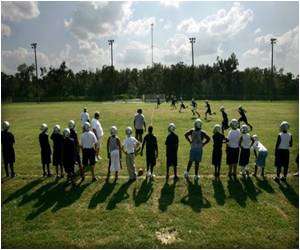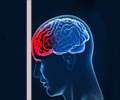
Mayer further suggested that healing from concussions may be similar to other body ailments such as recovering from a burn. He said that during recovery, reported symptoms like pain are greatly reduced before the body is finished healing, when the tissue scabs.
Mayer noted that standard brain scans such as CT or MRI would not pick up on these subtle changes in the brain and this can lead to the common misperception that any persistent symptoms are psychological.
The study compared 50 people who had suffered a mild concussion to 50 healthy people of similar age and education. All the participants had tests of their memory and thinking skills and other symptoms such as anxiety and depression two weeks after the concussion, as well as brain scans.
The study found that two weeks after the injury the people who had concussions had more self-reported problems with memory and thinking skills, physical problems such as headaches and dizziness, and emotional problems such as depression and anxiety than people who had not had concussions.
The people who had concussions also had evidence of abnormalities in the gray matter in the frontal cortex area of both sides of the brain, based on the diffusion tensor imaging scans.
Advertisement
Source-ANI










